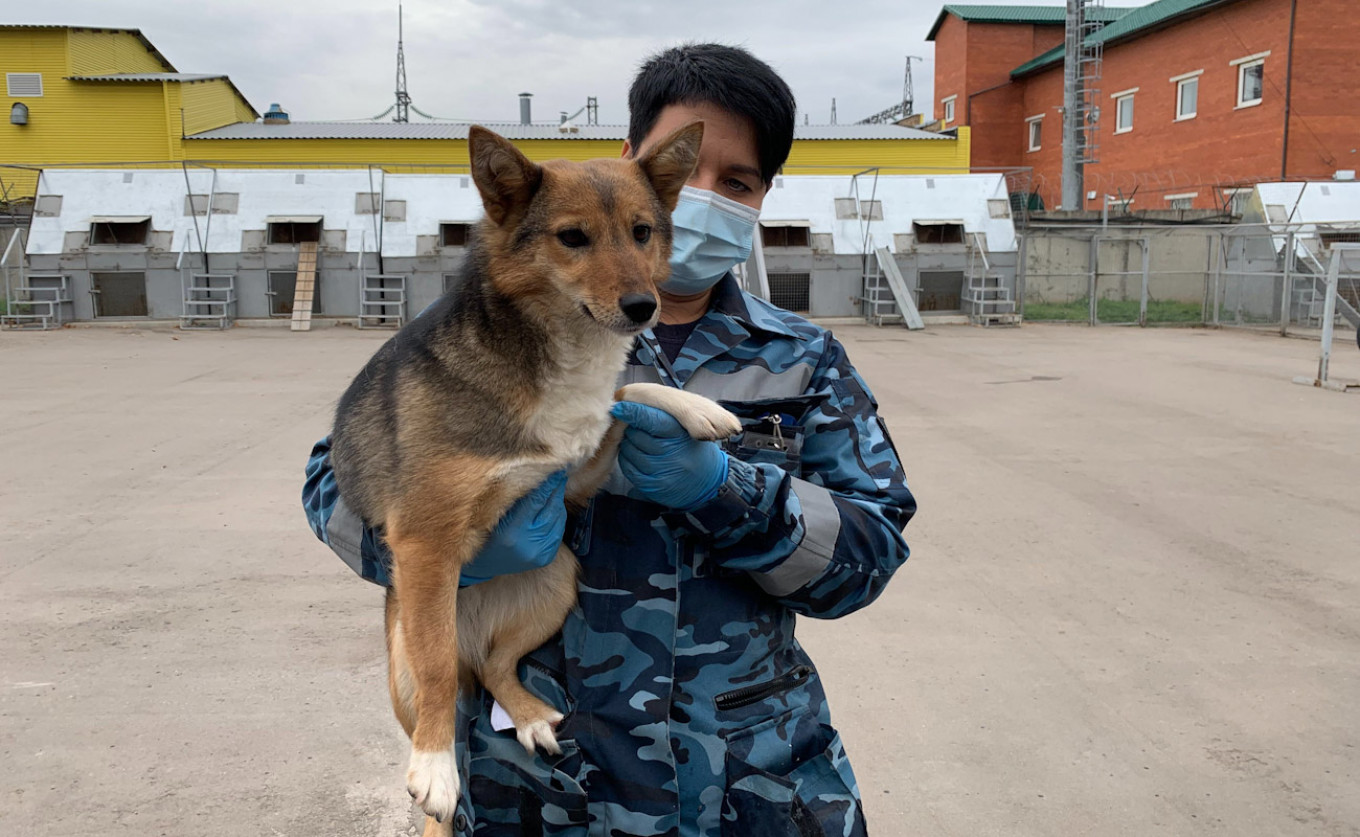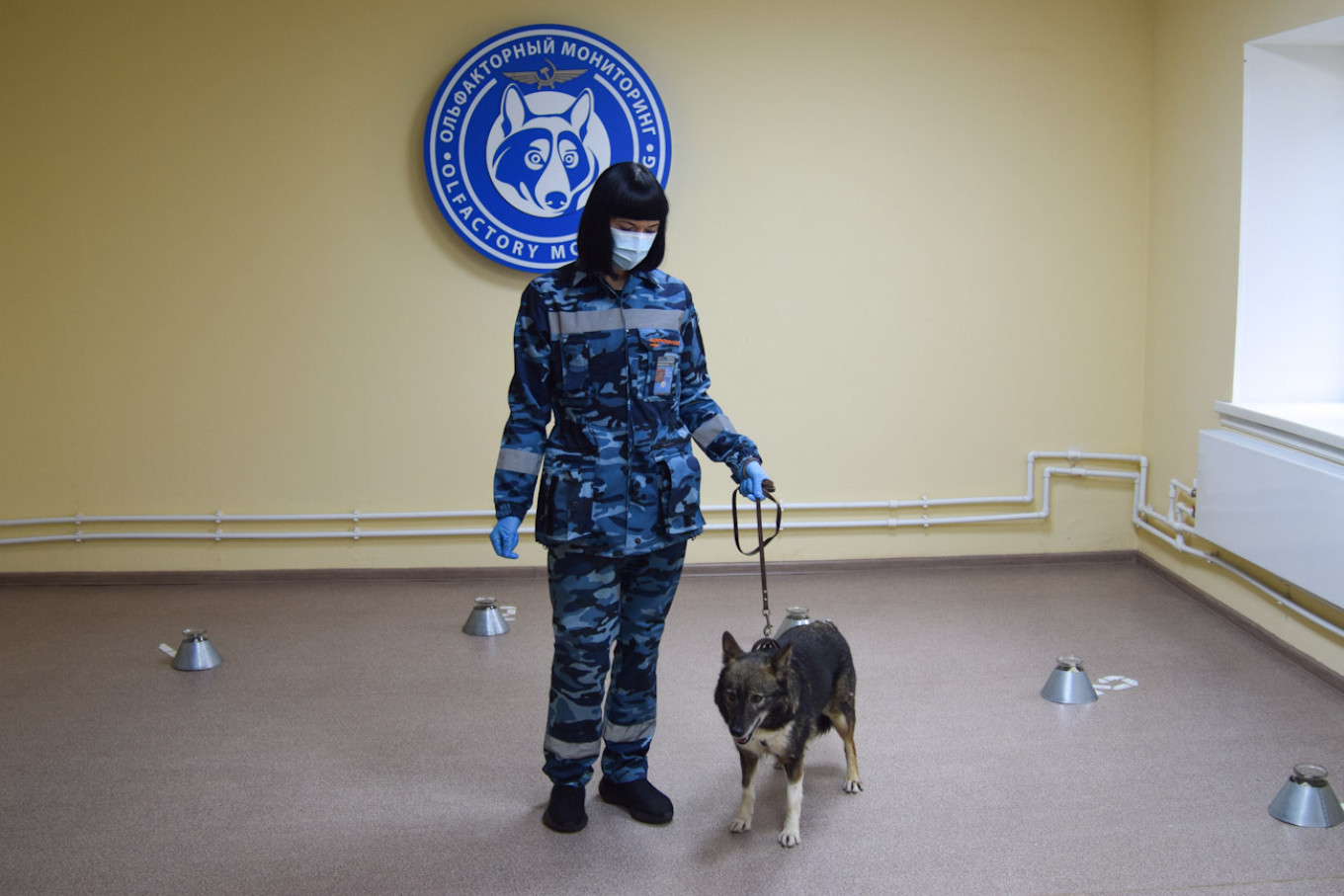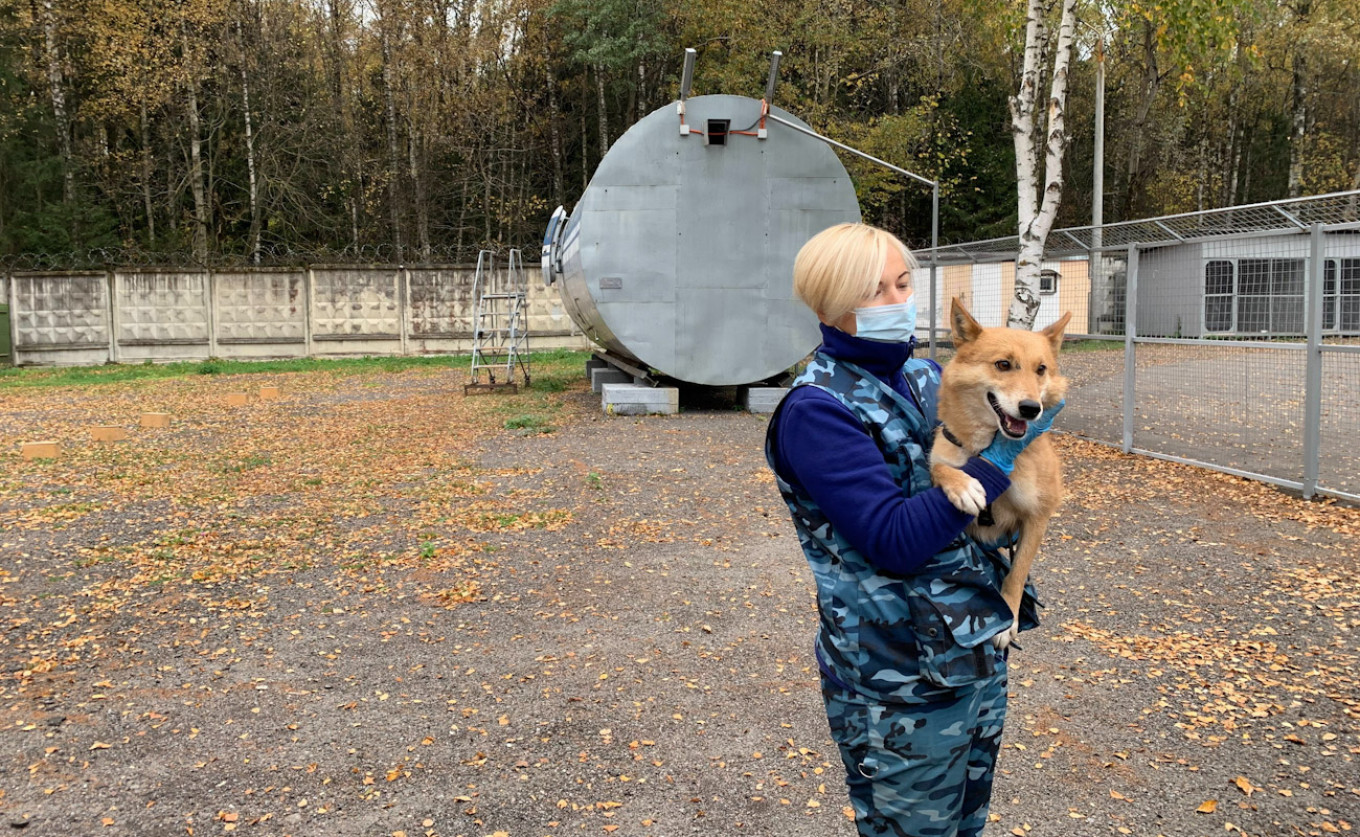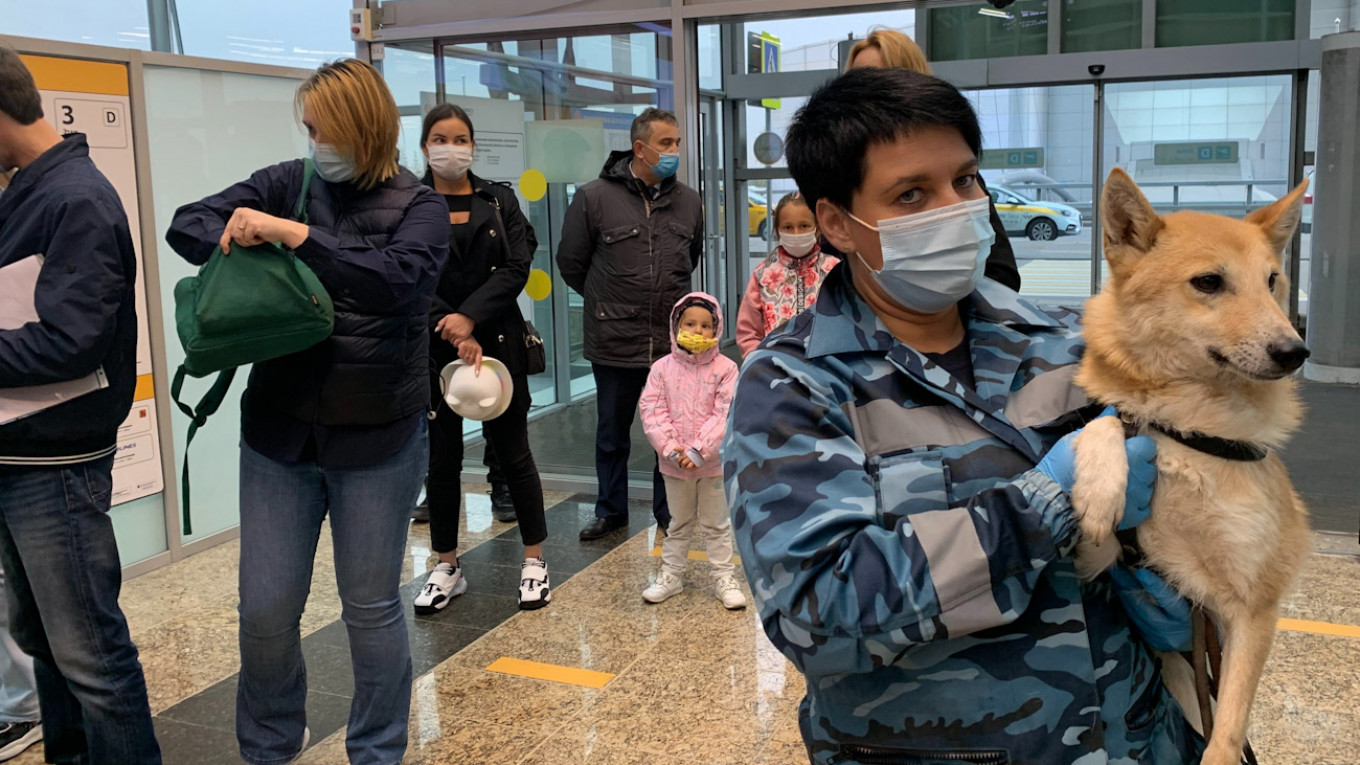In a yard filled with abandoned plane parts next to Moscow’s main Sheremetyevo Airport, handlers are putting a pack of energetic sniffer dogs through their paces.
The small, fox-like canines are Shalaikas, a cross between Arctic Nenets herding dogs known as Laikas and Southern Turkmen golden jackals. Russia hopes it will soon be able to use them to detect Covid-19 in humans.
“This is in many ways the perfect scent dog,” Yelena Batayeva, head of Aeroflot’s dog training service, told The Moscow Times, holding a pup called Kapriz.
“They have a highly unusual mix of Arctic and Southern blood. This gives them the unique skill of being able to pick up smells prevalent in both heavy warm air and light cold air particles that other dogs we have worked with couldn’t,” she explained.
Batayeva added that dogs have previously been used to detect other illnesses, including cancer, making them an “interesting solution” when it comes to detecting the coronavirus.

The breed was developed in the 1970s by renowned Soviet biologist Klim Sulimov to help combat the trafficking of opium from Afghanistan to the Soviet Union. By the late 90s Shalaikas were on the verge of dying out.
But in 2001, Russia’s flagship airline Aeroflot decided to use them for security as their agility means they can search confined spaces like aircraft cabins. Today, there are 69 of the dogs worldwide. Aeroflot, together with Russia’s consumer protection watchdog Rospotrebnadzor and the Gamaleya Research Institute, have chosen 15 of them to learn to detect Covid-19.
The sniffer dogs are being trained to detect the scent of the virus by smelling urine samples from patients who have tested positive. Batayeva said Aeroflot hopes that trials will be complete by December and the dogs working at Sheremetyevo early next year.
Russia hopes the Shalaikas will help to revive its suffering aviation industry, which is expected to lose up to $1.3 billion by the end of the year due to flight restrictions imposed to combat the coronavirus. The country is in the grip of a second wave of infection, and on Sunday broke its single-day record for coronavirus cases for the straight day, pushing the world’s fourth-highest tally toward 1.3 million.
Russia is not the only nation attempting to use dogs in the battle against the coronavirus.
In September, Finland was the first to announce a trial at Helsinki airport offering voluntary coronavirus tests to passengers using specially trained dogs. The New York Times reported that the first signs are good, with the animals being able to sniff out the virus people who are asymptomatic, or not yet showing symptoms, quicker than a standard PCR test.

In July, a study at the University of Veterinary Medicine Hannover in Germany concluded that dogs were able to detect saliva samples of people infected with the Covid-19 from noninfected samples with a 94% success rate.
However, questions remain about how exactly the dogs detect the virus.
“We know how dogs detect it — by smell — but we have no clue what they detect yet,” Anna Hielm-Bjorkman, a researcher at the University of Helsinki who monitors the Finnish trial, told The New York Times.
“If we find this out, we can train thousands of dogs across the world.”
There is also research being conducted on the impact and dangers of the coronavirus for animals. Holland in June ordered the killing of over 10,000 mink after some of the animals were believed to have infected humans in fur farms in the country, while some studies have shown that domestic cats appear to be vulnerable to the virus. Dogs, on the other hand, look to be immune to the virus, and there has been no evidence of them passing it on to humans.
Batayeva dismissed fears that the trials might harm the dogs. Over time, she and the other 25 dog handlers have grown close to the Shalaikas, often adopting them after the animals become too old to continue their work at the airport.
“We are in uncharted territory here and we don’t know yet how the trial will end. But I believe the Shalaikas are up to the challenge.”

A Message from The Moscow Times:
Dear readers,
We are facing unprecedented challenges. Russia's Prosecutor General's Office has designated The Moscow Times as an "undesirable" organization, criminalizing our work and putting our staff at risk of prosecution. This follows our earlier unjust labeling as a "foreign agent."
These actions are direct attempts to silence independent journalism in Russia. The authorities claim our work "discredits the decisions of the Russian leadership." We see things differently: we strive to provide accurate, unbiased reporting on Russia.
We, the journalists of The Moscow Times, refuse to be silenced. But to continue our work, we need your help.
Your support, no matter how small, makes a world of difference. If you can, please support us monthly starting from just $2. It's quick to set up, and every contribution makes a significant impact.
By supporting The Moscow Times, you're defending open, independent journalism in the face of repression. Thank you for standing with us.
Remind me later.







